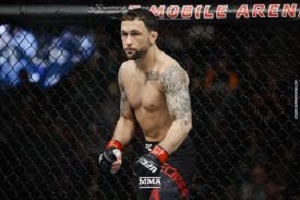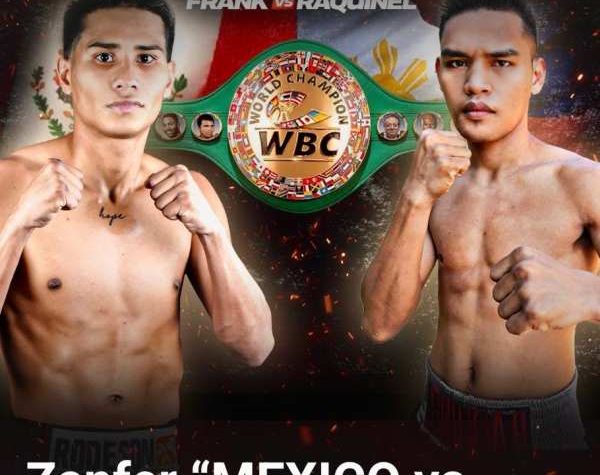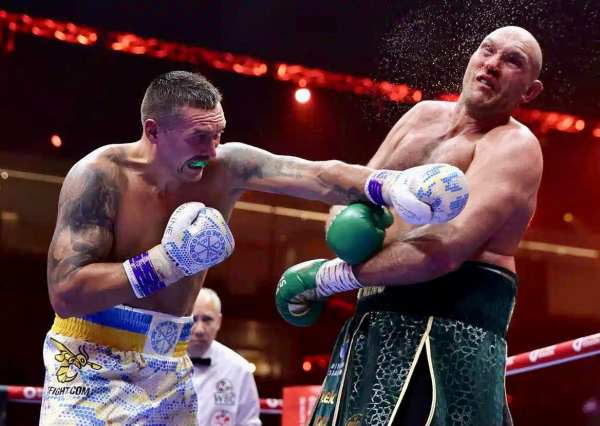
MMAfighting.com
In the UFC’s eternal quest to generate new stars it’s sometimes worthwhile to go back and celebrate its constants. Frankie Edgar has been in the UFC for a little over 11 years. Up until Saturday night’s knockout at the hands of 27-year-old Brian Ortega, he had never been finished in a fight. That is an astounding piece of trivia.
Especially when you remember Edgar has spent his entire career fighting up a weight class from what might be considered his natural weight…and, for a long stretch there, perhaps even two. Ortega dwarfed the 145-pound version of Edgar at UFC 222, an all-too-familiar sight for the pride of Toms River, New Jersey. The much bigger Gray Maynard tried to knock Edgar’s head off seven years ago at UFC 125, and effectively did — yet he couldn’t finish him. Frankie survived, then flourished. He loves feeding the odds back to the sharps. Not just the odds in a given fight, but the broader board of odds constantly in play. The ones that handicap his “can’t” versus his “just did.”
Edgar’s self-belief is extraordinary. It’s what fueled him to an unlikely lightweight title and a pair of defenses.
That’s what makes him so easy to root for. His is a heart of rebellion. He’s undersized, defiant, durable, nearly impossible to diminish. He’s flickering, deadly and lovable as a perennial underdog — a born scrapper. After landing an elbow and some follow-up shots, Ortega became the first to literally put Edgar away. That feat can’t be undersold; Ortega did what so many others could not. Jose Aldo couldn’t do it. Neither could Benson Henderson (in two tries), Maynard (in three), Sean Sherk, B.J. Penn, Chad Mendes or Cub Swanson. In most cases, Edgar was the buzz saw. At 5-foot-6, one hundred and nasty, Edgar could be the most unconventional of tyrants.
And if there’s ever been a testament to what Edgar has come to mean in the fight game, it showed on Saturday night when he suffered his first knockout. Men who should be his rivals came to his immediate aid. Conor McGregor chimed in with a Tweet that read, “Frankie’s career deserved for that to be against me tonight. Respect Frankie. Love and respect always! A true fighter’s fighter.” He signed off with an emblematic heart.
Max Holloway, whom Edgar was supposed to fight for the 145-pound title on Saturday, also sent out a note echoing what everybody was thinking. “You had nothing to gain from taking that fight, [Frankie],” he wrote on Twitter. “But you took it, you defended what you already earned. There’s no belt for sacrificing everything but true fans and Jersey knows no belt can outshine what you bring to the sport.” Holloway signed off with a “Chin up, bratha.”
When your closest competitors give you a standing ovation at the precise moment you fall, you know you’ve been doing it right. Because let’s face it — Edgar had everything to lose in this fight with Ortega. At least in the conventional sense. He’d already earned his title shot, and yet he gambled on himself against an undefeated uprising tyrant in the ranks with everything to gain. He never hesitated. He had earned his title shot against McGregor, too, and motored on when the fight didn’t materialize. Edgar isn’t a sidelines kind of guy. He’s a roll with the punches kind of guy. When a blow is dealt him, he just fights on.
That’s who Frankie Edgar is. An old-fashioned risk-taker who refuses to be mastered by second thoughts and logic and safe routes. His is a pavement-to-payday approach, black and white, beat me if you can.
He showed up that way again on Saturday, thus giving much-needed depth and allure to a pay-per-view. Psychologically, he went from momentous title challenger to somebody else’s ultimate test. That’s just what he do. If Ortega beat Edgar it would signal a changing of the guard in the feathers. Ortega would take Edgar’s spot in the pecking order. Ortega would be the one answering questions about fighting Holloway next, while “The Answer” himself would be left to ponder new questions.
Namely: What’s next? Does Edgar go down to bantamweight, where he would finally encounter body types that more closely resemble his own? Or does he brush himself off, win a fight at featherweight, and hope to get the title shot that’s either forever elusive or forever squandered? At 36, does that side of the game even mean what it used to? Is it about titles and title shots, or just defying the odds and making people quietly, reverently drop their jaws one small act of defiance at a time?
Edgar knew the deal when he signed on to fight Ortega. He believed in himself, which in a sport full of subtext and inferences once again spoke volumes for who he is as a fighter. Holloway fell out of the fight, and Edgar was re-dealt a monster of a featherweight who had every mental and physical advantage. He didn’t hesitate to say yes. The odds were stacked against him, as they commonly are, and the answer was yes. It’s always been yes, because Frankie Edgar believes in himself.
That’s a legacy, too.





More News
Casimero TKO’s Sanchez in 1st round
Raquinel wins WBC Continental Americas super flyweight title
Frank vs Raquinel on ABEMA LIVE PPV